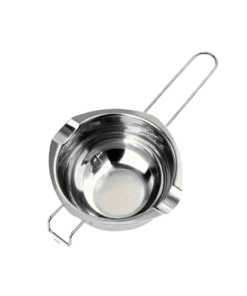Gel Capsules – 100pcs
R115,00
Vegetable Capsules – 100pcs – made from plant-based materials, primarily cellulose, and offer several advantages for both consumers and manufacturers.
2 in stock
Vegetable Capsules – 100pcs (Empty)
Key Features and Benefits
Plant-Based Composition
Vegetable capsules are made from cellulose, which is derived from plant sources such as pine or tapioca. This makes them a perfect choice for vegetarians and vegans looking for an alternative to traditional gelatin capsules.
Quick Dissolvability
These capsules dissolve quickly in the digestive system, allowing for rapid release and absorption of the enclosed contents. This ensures the efficient delivery of active ingredients to the body for optimal effectiveness.
Compatibility and Allergen-Friendly
Vegetable capsules are generally hypoallergenic and are an excellent choice for individuals with dietary restrictions or sensitivities, including those who are allergic to gelatin or other common allergens.
Odorless and Tasteless
These capsules are both odorless and tasteless, so the contents remain the primary source of flavor. This can enhance the overall experience of taking supplements.
Versatile and Customizable
Vegetable capsules are highly versatile and can be filled with a wide range of substances, such as vitamins, minerals, herbal extracts, and probiotics. This makes them ideal for custom supplement formulations, catering to individual needs.
Easy to Swallow
With a smooth surface and standard size, vegetable capsules are easy to swallow, offering a more comfortable experience compared to tablets or powders, particularly for those with difficulty swallowing larger supplements.
Opaque or Transparent Options
These capsules come in both opaque and transparent varieties. Transparent capsules are particularly appealing when consumers wish to see the contents inside, adding to the product’s transparency and trustworthiness.
Long Shelf Life
When stored properly, vegetable capsules have a long shelf life, ensuring the potency and stability of the supplements inside. This helps maintain the effectiveness of the ingredients over time.
Why Choose Vegetable Capsules?
Whether you’re a consumer looking for a plant-based supplement option or a manufacturer in need of a vegetarian-friendly encapsulation solution, vegetable capsules provide a practical, versatile, and eco-friendly choice. They offer a reliable method of delivering dietary supplements while accommodating various dietary preferences and restrictions.
Order Now
Choose vegetable capsules today to experience the benefits of a sustainable and customizable supplement option.
| Weight | 0,050 kg |
|---|---|
| Dimensions | 10 × 5 × 10 cm |
Related products
Apparatus
Apparatus
Apparatus











